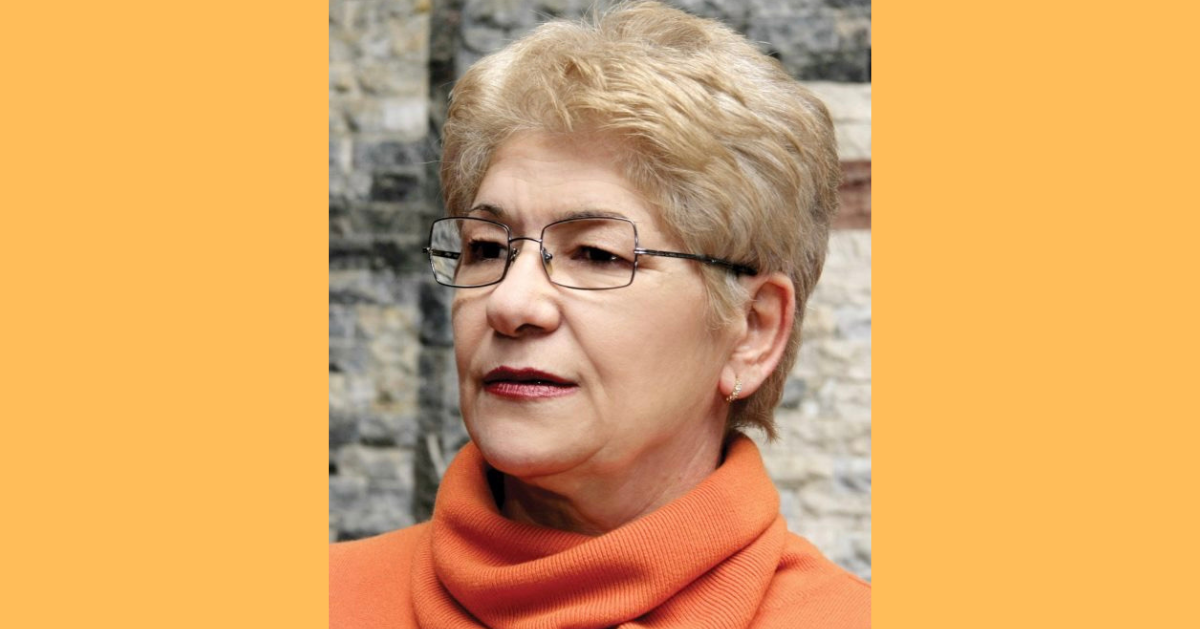“The mind does not depend on gender identity, and women have proven this with their work. There is no force that can stop the sacred aspirations of a nation towards self-determination, comprehensive emancipation, and equality.”
These words of Edi Shukriu, the model woman who gave a lot to the nation by engaging in public life and implementing gender equality, show a lot about her dedication to paving the path of knowledge and emancipation for young girls. With her extraordinary work, Edi Shukriu left her mark in the field of archaeology, history, literature, and in political, institutional, and cultural commitments throughout the Albanian space.
The first woman archeologist in Kosovo, Edi Shukriu, was noted for the discovery of the Goddess on the Throne (Hyjnesha në Fron), which today is a symbol of the capital of Pristina.
“Archaeologists always dream, just like I did. In 1968, when I was a first-year student, I read an article in a Romanian magazine about two monuments dedicated to the Dardania’s goddess that were discovered in Romania. Since then, I have been trying to find them; I’ve never stopped. I kept thinking, ‘How is it possible not to have a monument of the Dardania’s goddess in Kosovo?’ I searched for years, and in 1988, I discovered it in Smira, Vitia. It was a miracle! What I have left as an unrealized dream is that there is also a temple dedicated to the Dardania’s goddess in Kosovo. I know for sure that it was also in the territory of Kosovo, right in front of our noses, but I don’t know where it is. I hope that the new generations will discover it,” said Edi Shukriu.
Edi Shukriu, the steely woman who devoted her life to archaeology, science, literature, and activism, set herself apart from many of her peers. She focused her scientific and professional activities on archaeological and ancient history research, integrated protection of cultural heritage, presentation of cultural heritage in the country and abroad, as well as its management and use for social and economic development.
Apart from her academic work, Edi Shukriu played a significant role as an activist for state-building in Kosovo, the development of democratic processes, the participation of women in decision-making levels in public life, and the perpetuation of gender equality. She was the initiator of the establishment of the Democratic League of Kosovo (LDK) Women’s Forum in 1990 and was the chairwoman for five consecutive years.
One of the initiators of the “Me bukë në dorë” march, Edi, along with many other women activists, left Prishtina for Drenica to support the women who were experiencing the war in 1998. Edi Shukriu also left her mark on the establishment of many academic and cultural institutions in Kosovo. She initiated the establishment of the Archaeological Institute of Kosovo, the Opera and Ballet of Kosovo, created the core of the Kosovo Philharmonic, and strongly supported the continuation of the work of the Kosovo Ballet.
Edi Shukriu completed her studies in archaeology at the University of Belgrade, and also completed her master’s degree at the same university, while obtaining her doctorate at the University of Pristina. She received the title of Chairperson of the Kosovo Council for Cultural Heritage during the years 2009-2012. She was also the vice-president of the PEN Center of Kosovo and a member of the Writers’ Association of Kosovo.
She founded the group of Young Archaeologists “Shtjefën Gjeçovi” at the University of Pristina (1986-1990), where she organized archaeological expeditions and thematic exhibitions in the Archaeological Collection of the Faculty of Philosophy. From 2014, she was a member of the European Academy of Sciences and Arts in Salzburg. For her life’s work in the field of cultural heritage, she was awarded the “Dea Dardanciae” award by the Ministry of Culture, Youth and Sports.
Edi Shukriu was born in Prizren in 1950 and lived in Pristina until her passing on January 17, 2023.







